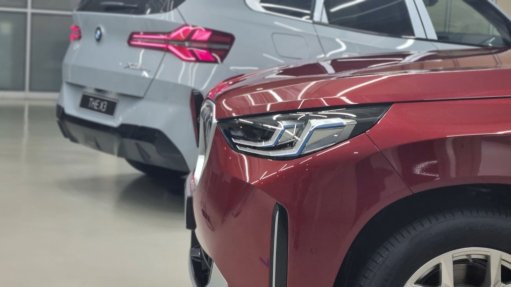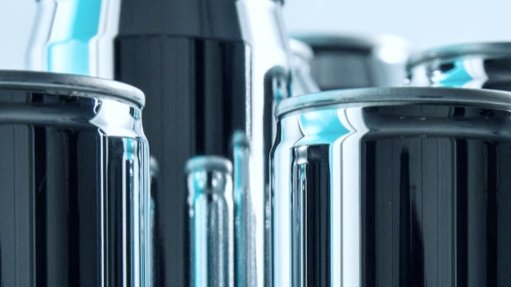Africa robbed, West enriched
Corrupt African political elites that plunder their countries’ coffers and stash the loot abroad – with Western capitals their favourite vaults – have developed an astonishing sense of entitlement.
A case in point: Equatorial Guinea, the West African nation where it is credibly alleged that Teodoro Obiang Nguema Mbasogo is presiding over the wholesale plunder of State resources, has taken France to the International Court of Justice (ICJ) for daring to seize a $100-million mansion in Paris after the 2021 conviction of Nguema’s son and number two in government on corruption charges.
In addition to losing the property, Teodorin Nguema Obiang Mangue was handed a three-year suspended sentence and fined €30-million.
Now, in a petition to the ICJ, filed on July 3, Equatorial Guinea is demanding that France grant it “immediate, complete and unhindered access to the building”.
This is not the two countries’ first rodeo at The Hague. They locked horns back in 2016 when Equatorial Guinea claimed, somewhat conveniently, that the mansion was actually its embassy – and not Teodorin’s private residence. The court wasn’t buying it, siding with France, which argued that Equatorial Guinea had only tried to designate the building as an embassy after the investigation into Teodorin had begun.
But the Paris mansion is just one glittering gem in a far bigger crown of corruption. According to graft watchdog Transparency International, a staggering $3.7-billion in corruption-linked assets had been ferreted away from Africa to wealthy nations by the end of last year. The findings, unearthed through leaked information, court records and other public documents, revealed a global spiderweb of ill-gotten gains.
Totalling 375, the assets were spread across 74 jurisdictions and included companies registered in the British Virgin Islands, Panama and Seychelles; real estate in France, the UK, the UAE and the US; and bank accounts mostly in Hong Kong, Switzerland, the UK, the UAE and the US.
According to Transparency International’s investigation, companies and trusts – linked to 85% of the cases probed – were the preferred tools for obscuring ownership through complex cross-border corporate structures and multiple shell companies.
Real estate, however, emerged as the top vehicle for laundering stolen funds. France, the UK and the US stood out as jurisdictions where dirty money flowed into this asset class, owing to regulatory loopholes. In France, for instance, foreign companies can buy immovable property without declaring the true owner – a gap the EU’s Sixth Anti-Money Laundering Directive aims to close – while in the US non- financial enablers dealing in real estate are not required to perform customer due diligence or to file suspicious transaction reports. And in the UK, ownership of real estate can still be hidden through offshore companies held by trusts, allowing some to sidestep recent transparency reforms.
The nationalities of the beneficial owners of the properties were as varied as Algeria, Angola, Congo-Brazzaville, Egypt, Gabon, Guinea, Kenya, Libya, Morocco and Nigeria.
While the most common method of paying for the real estate was through funds held in local bank accounts, in some cases the money was wired directly from the country of origin or even transported as physical cash, which should have raised immediate red flags. In one particularly brazen instance, a politically exposed person from Gabon reportedly paid $1-million in cash for three properties.
The main takeaway from the Transparency International investigation is damning: the world’s major financial hubs, secrecy jurisdictions and weak regulatory systems enable corrupt actors to stash and grow their wealth overseas, at the expense of Africa’s people.
But this is hardly news. Back in 2015, a report by the High-Level Panel on Illicit Financial Flows, chaired by former South African President Thabo Mbeki, estimated that the continent was losing $50-billion a year to illicit outflows. Over the previous three decades, the total was believed to exceed $1-trillion.
More recent estimates paint an even grimmer picture. The Tax Justice Network Africa now estimates yearly losses at about $90- billion, driven by the commercial practices of multinational corporations – especially trade mispricing and tax abuse – as well as money laundering, trafficking and corruption.
Tackling this scourge won’t be easy. But perhaps a starting point for governments in Africa and elsewhere would be to ensure that all professionals – financial and non-financial alike – whose services are instrumental in hiding stolen assets are brought under robust anti-money-laundering regulations.
Article Enquiry
Email Article
Save Article
Feedback
To advertise email advertising@creamermedia.co.za or click here
Press Office
Announcements
What's On
Subscribe to improve your user experience...
Option 1 (equivalent of R125 a month):
Receive a weekly copy of Creamer Media's Engineering News & Mining Weekly magazine
(print copy for those in South Africa and e-magazine for those outside of South Africa)
Receive daily email newsletters
Access to full search results
Access archive of magazine back copies
Access to Projects in Progress
Access to ONE Research Report of your choice in PDF format
Option 2 (equivalent of R375 a month):
All benefits from Option 1
PLUS
Access to Creamer Media's Research Channel Africa for ALL Research Reports, in PDF format, on various industrial and mining sectors
including Electricity; Water; Energy Transition; Hydrogen; Roads, Rail and Ports; Coal; Gold; Platinum; Battery Metals; etc.
Already a subscriber?
Forgotten your password?
Receive weekly copy of Creamer Media's Engineering News & Mining Weekly magazine (print copy for those in South Africa and e-magazine for those outside of South Africa)
➕
Recieve daily email newsletters
➕
Access to full search results
➕
Access archive of magazine back copies
➕
Access to Projects in Progress
➕
Access to ONE Research Report of your choice in PDF format
RESEARCH CHANNEL AFRICA
R4500 (equivalent of R375 a month)
SUBSCRIBEAll benefits from Option 1
➕
Access to Creamer Media's Research Channel Africa for ALL Research Reports on various industrial and mining sectors, in PDF format, including on:
Electricity
➕
Water
➕
Energy Transition
➕
Hydrogen
➕
Roads, Rail and Ports
➕
Coal
➕
Gold
➕
Platinum
➕
Battery Metals
➕
etc.
Receive all benefits from Option 1 or Option 2 delivered to numerous people at your company
➕
Multiple User names and Passwords for simultaneous log-ins
➕
Intranet integration access to all in your organisation

















